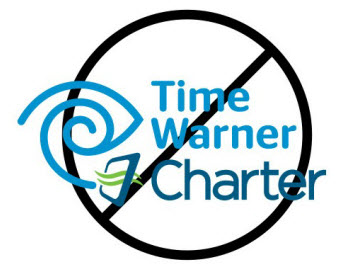Charter-TWC: A Bad Deal for Storytellers

The smarter way to stay on top of the multichannel video marketplace. Sign up below.
You are now subscribed
Your newsletter sign-up was successful
Last year, Comcast’s attempt to merge with Time Warner Cable collapsed after the Federal Communications Commission rightly concluded, “The merger doesn’t help consumers.”
Now, the FCC and the Department of Justice must once again ask whether consumers would benefit from a proposed merger of three giant cable operators: Charter Communications, Time Warner Cable and Bright House Networks.
The clear, simple answer is no! The continued, rapid consolidation of the communications and entertainment business is not in the interest of consumers or content creators.
If allowed to merge, this Mega-Cable monolith of a conglomerate would control more than a third of America’s cable television and broadband markets, including New York; Los Angeles; Dallas-Ft. Worth; and Charlotte and Raleigh-Durham, N.C. The merged companies, plus Comcast, would constitute a dangerous duopoly controlling almost 90% of all high-speed broadband connections in the country. That would put these giants in position to control the fate of new and emerging over-the-top services that rely on a robust high-speed broadband connection.
Worse yet, the thought that this merger is only a one-dimensional “distribution” play seems to us to be an unfinished sentence. Charter Communications and Liberty Media are very tightly linked with Discovery Communications, which owns 13 cable networks in the United States alone. Mega-Cable would have clear incentives to exercise its leverage in favor of Discovery content.
The content that consumers crave is carried over a single digital pipeline, whether it comes in the form of cable TV signals, OTT services, or online viewing. Content creators — especially independent storytellers and programmers — rely on competition among these entities to give them the opportunity to pitch and sell their work in as many places as possible. This ensures they are able to fetch a fair price and creates a diverse range of programs that inform and entertain audiences.
This is what competition is supposed to be about: a robust marketplace offering the greatest number of options to creators and consumers alike. The Mega Cable merger would significantly reduce competition. We urge the FCC and the Department of Justice to reject it.
The smarter way to stay on top of the multichannel video marketplace. Sign up below.
The Writers Guild of America, East, AFL-CIO, represents thousands of members who create shows and craft compelling stories. Our work is enhanced when there are multiple opportunities to obtain distribution, funding and direct access to audiences. We, and the audiences with whom we share our work, are diminished by the increased power of the proposed Charter merger with Time Warner Cable and Bright House Networks.
Lowell Peterson is executive director and Michael Winship is president of the Writers Guild of America, East.
